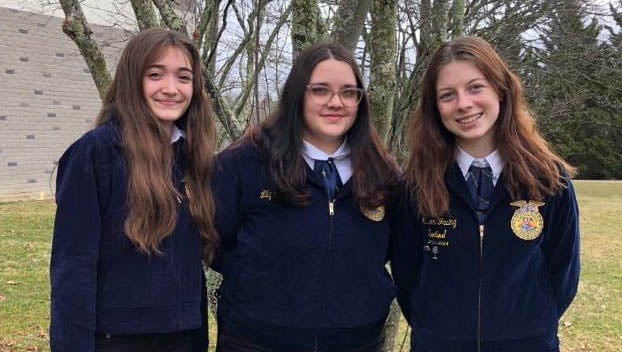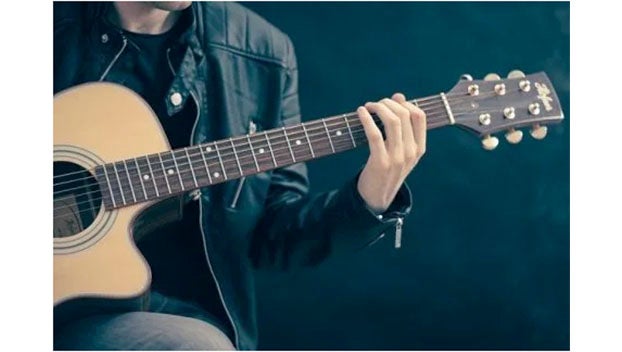What is horse judging? RH team works in unique competition
Published 1:16 am Saturday, February 24, 2024

- The Randolph-Henry High School Horse Judging Team competed at the Virginia Tech Block and Bridle Horse Judging contest, finishing 15th in the advanced senior division and 10th in the halter section. Team members included, from left, Alexis Karakaris, Lily Sutphin and Madison Irving.
|
Getting your Trinity Audio player ready...
|
Calli Claybrook grew up with horses, riding at home. Then in ninth grade at Randolph-Henry High, she learned about horse judging and was part of a team that won a state championship. Now things have come full circle, as she’s the teacher/coach, encouraging a new generation of horse judges at Randolph-Henry.
Earlier this month, the group took part in the Virginia Tech Block and Bridle Horse Judging contest, finishing 15th overall in the advanced senior division and placing 10th in the halter section. It’s a unique event because while the students from different schools are judging the horses, each team is also being judged themselves.
“After they judge the classes, they have to explain their reasons,” Claybrook said. “Each team gets a score on how well they did judging.”
Think of this almost like an instant review, checking up on an NFL or college football group of referees. There are certain things the horse judging team is supposed to know, things they can spot during the competition. Maybe a horse didn’t perform well. Maybe the owner missed little things and didn’t have them ready to compete. That’s what the horse judging teams are expected to catch and in turn get points on if they did or didn’t.
Then they have to defend their position, much like presenting a term paper. Each school’s horse judging team has to go before the event’s officials, giving reasons why they made the choices they did.
Starting horse judging in class
Now students aren’t expected to just know all this from the start. Before joining the horse judging team, most take Claybrook’s Equine Science class at Randolph-Henry. There they learn about horse nutrition, about handling and basic care of horses. It helps each one be better prepared when they have to stand before the officials and present their case.
As with any competition, the team with the highest combined score wins, basically the team that did the best job judging. At any event, school teams will have anywhere from eight to 12 classes of horses to judge, with four horses in each class. It’s all different breeds, so for example they could have a class of quarterhorses and then switch to a group of Arabians.
“They’re privately owned horses,” Claybrook said. “They usually contact different farms (before an event) to bring their horses in and the owners ride them.”
School groups compete in a varied number of events each year. It really depends on how they do. This event in Blacksburg was a practice run of sorts, to get them ready for the state event in April. If the Randolph-Henry team places in the top five during the state event, they advance to another one in June and so on. It can keep going until November, which is when the national event is held in Indianapolis. Succeed in these competitions, officials say, and you could earn yourself a job after graduation in the horse industry.
“It’s just about a love of horses,” Claybrook said. “It’s almost like a sport and a job interview combined.”



